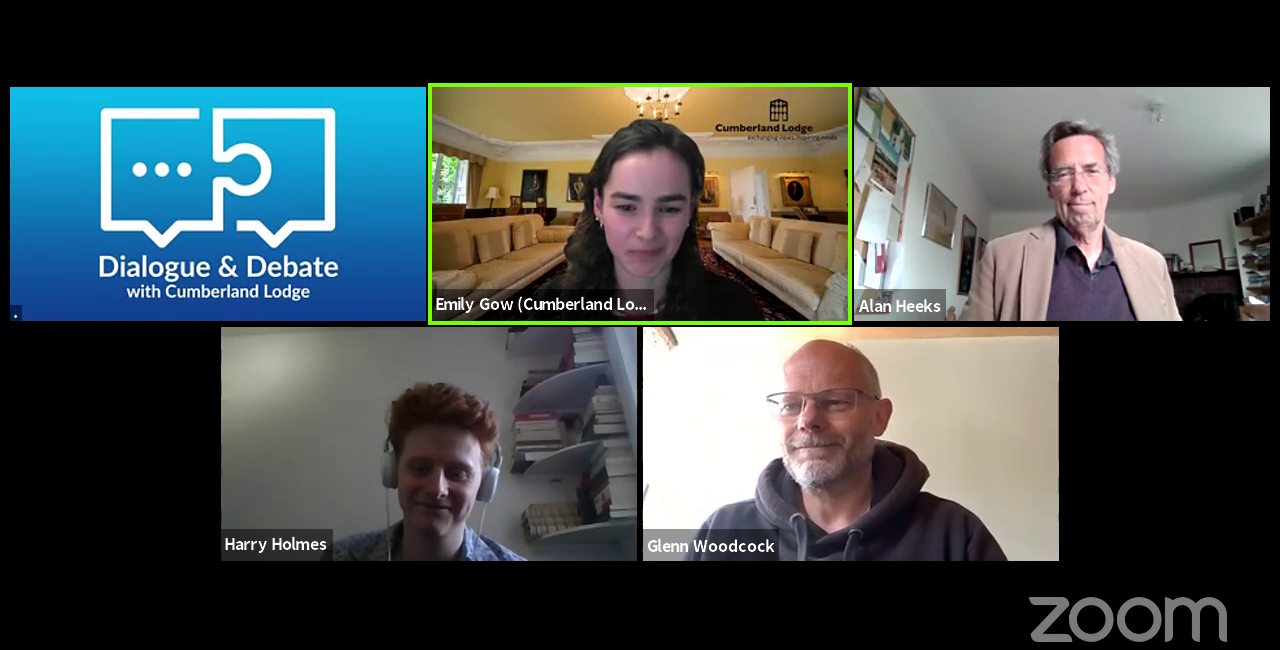On Wednesday 5 May 2021, Cumberland Lodge hosted a Dialogue & Debate webinar exploring how people in the UK can adapt to climate change in ways that foster social cohesion rather than division, across nations and within communities.
This one-hour, interactive discussion was hosted by Programme Officer, Emily Gow, with guest panellists, a live poll and audience Q&A. The three guest speakers were:
- Alan Heeks – Director, Seeding our Future
- Harry Holmes – Campaigner, UK Youth Climate Coalition
- Glenn Woodcock – Founder, Exeter City Futures
Opening the discussion, Emily highlighted the fact that sustainable choices can help mitigate climate change impacts, however many changes are now irreversible, so we need to learn to adapt our lifestyles in ways that protect nature and promote social cohesion. Following the four-part ‘Climate Futures: Youth Perspectives’ conference held in March 2021, the focus of this webinar was to discuss what can be done to minimise the effects of climate change within our communities and, in particular, how to address the unequal effects of climate change in the UK.
What are the social challenges caused by climate change?
Glenn described how the effects of climate change in the UK are unevenly distributed, for example, coastal, riverside and rural communities are particularly vulnerable, and he illustrated methods across transport, diet and housing which can help the most at risk. However, he pointed out that policies in these areas can either bring unity or further division within the population.
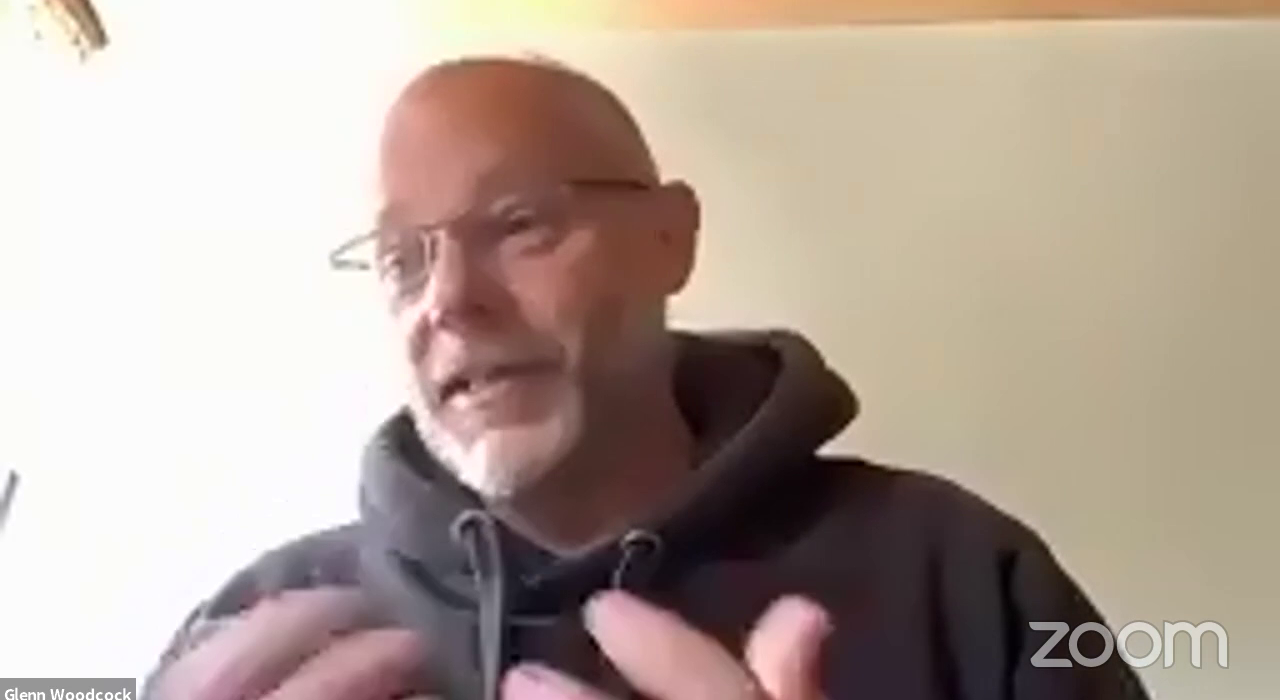
What is ‘deep adaptation’ and how can it help?
Deep adaptation focuses on the need to prepare for potential societal collapse in the face of social, economic and political disorder caused by environmental changes. Here, Alan spoke of Professor Jem Bendell’s work which highlights that most policymakers emphasise climate impact mitigation (e.g., greenhouse gas emissions reduction) over adaptation. He also explained the importance of dealing with the emotional impacts of climate change, referencing www.deepadaptation.info for resources.
Alan then described how Professor Bendall defines adaptation in terms of voluntary simplicity; where individuals choose a ‘simple way of life’ by dismissing the high-consumption and materialistic lifestyle of consumer culture. This change in lifestyle and the recognition that food security will be a major impact of climate change is crucial.
Alan explained how Professor Bendall believes that food security and food supply will be the biggest issues caused by climate change. He mentioned that one way he was working to increase food security is by encouraging people to grow their own food or buying from local producers, as this will lead to local communities supporting each other when the impacts of climate change hit. One of Alan’s key points was that the sharing of resources and strength in local communities is crucial for deep adaptation.
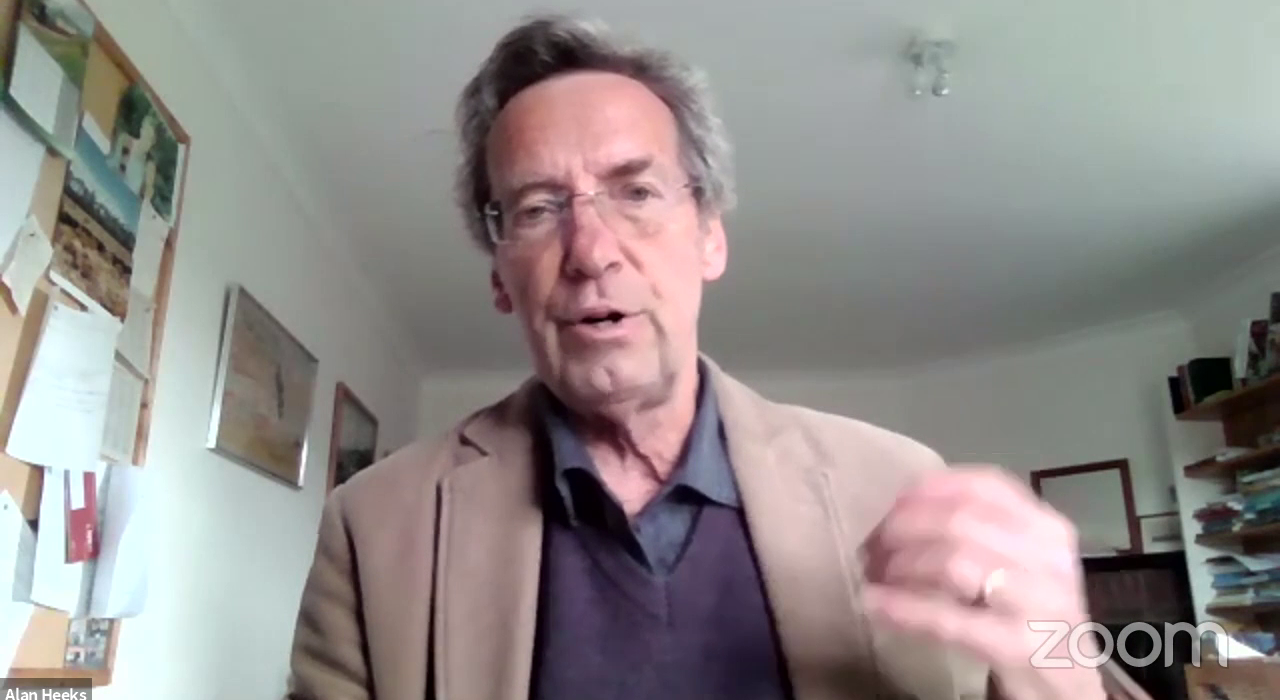
What is currently being done to support and help prepare vulnerable communities?
Harry explained that good examples of adaptation are where the people who are the most vulnerable to climate change are leading and designing the course of action. With reference to preparing communities, Alan explained the benefits of projects such as Seeding our Future and Bridport Food Matters, which are dedicated to enhancing food security and reducing the UK’s vulnerability around imported supplies.
Alan also described the benefits of co-housing (semi-communal homes consisting of both private and shared community space) and explained how resource sharing is important, as someone living alone has a much higher carbon footprint compared to people living together. Alan stressed how co-housing makes it easier for people to share food, transport and renewable energy sources, such as biomass heating systems or solar panels, consequently saving money. To encourage this way of living, Alan suggested running open afternoons and workshops, where neighbours in a street can meet and learn of the benefits that arise from co-housing, including a good quality life, a lower climate impact and lower costs.
Similarly, Glenn cited some successful initiatives in Exeter that make use of locally sourced power, and he explained how a sustainability-focused public expenditure plan can be crucial in driving change. Exeter has committed to becoming a net carbon neutral city by 2030. For example, he spoke about the Liveable Exeter housing expansion scheme, which involves creating sustainable communities of affordable housing close to city-centre employment and services, where active transport is encouraged (e.g., walking and cycling) to reduce vehicle use and hence reduce carbon emissions and improve air quality.
How much responsibility lies with young people to ensure that we are preparing for changes ahead? Are children learning enough about climate adaptation?
Harry explained that climate change is causing intergenerational divisions across society and pointed out that young people should not be solely responsible for dealing with the crisis. He explained that, in the last 100 years, the wealthiest people in the ‘Global North’ have inflicted climate change and a number of environmental crises on society, particularly the wider ‘Global Majority’.
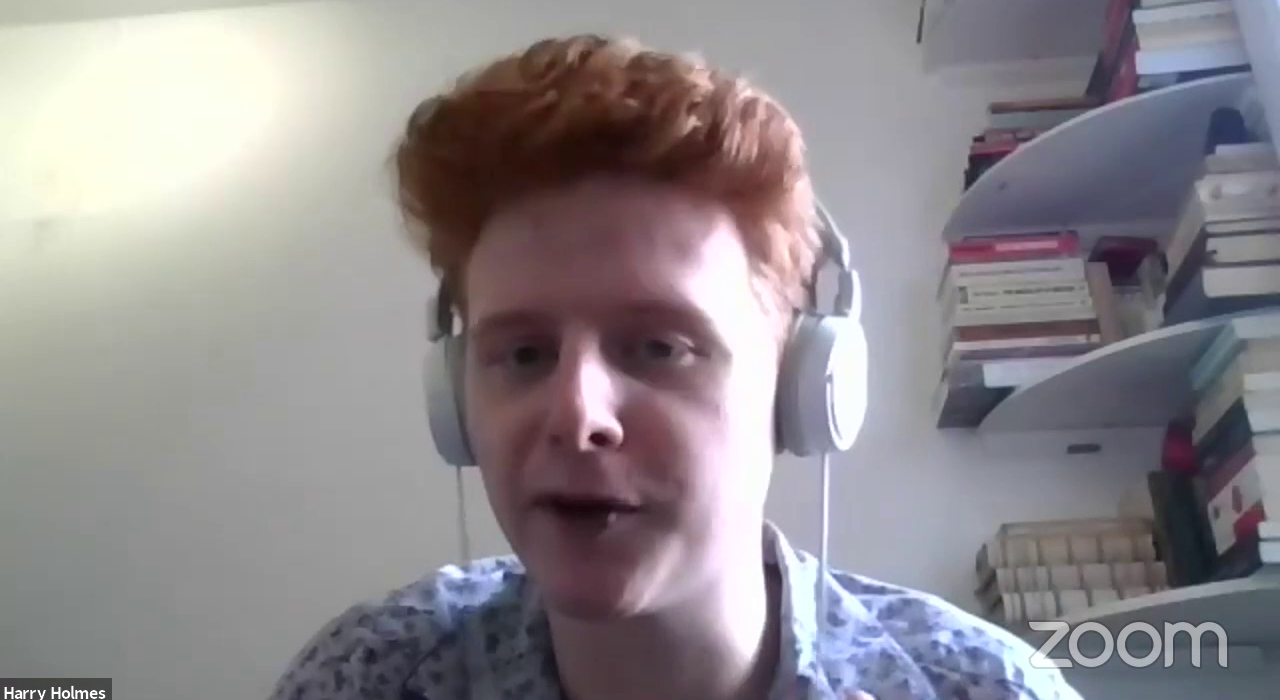
Glenn stressed the importance of teaching children about how to adapt to change. With reference to voluntary simplicity, he explained how the education system is largely directed towards abstract skills, which increases the need to rely on organisations and initiatives outside of formal education for practical skills development.
Alan shared some examples of pilot projects in disadvantaged communities, through Seeding our Future, emphasising that equipping people with the communication skills to express opinions and respond to conflicting views is invaluable. Alan, who has been involved in running programmes for children through Hazel Hill Wood (a nature reserve near Salisbury), said that ‘contact with nature’ is particularly important from an early age and will help people to connect with nature, understand the climate crisis better and therefore become more likely to support political action.
Harry explained the complexities of changing the education system to make it both adaption and mitigation focused. He argued that climate change should be covered in all subjects, not only in Geography and the physical sciences, and he expressed concern about the lack of opportunities available to study climate change at university level.
Is climate change a cause that could help people to overcome social and political divisions?
Harry explained how adaptation can be imposed in exclusionary ways (e.g. flood recovery) and stated that only when the most vulnerable in society are centred in the adaptation plan will a different vision of it be seen.
Alan also explained how the inclusion of diverse voices from across a community is difficult, but that citizen assemblies are an effective way to widen representation and empower people who have been marginalised traditionally or ignored in climate adaptation discussions. Reflecting on a situation in Exeter, Glenn proposed that climate change could indeed be a ‘unifier’ in diverse communities, and explained that discussions about climate change across different groups can uncover and get people talking more openly about political differences.
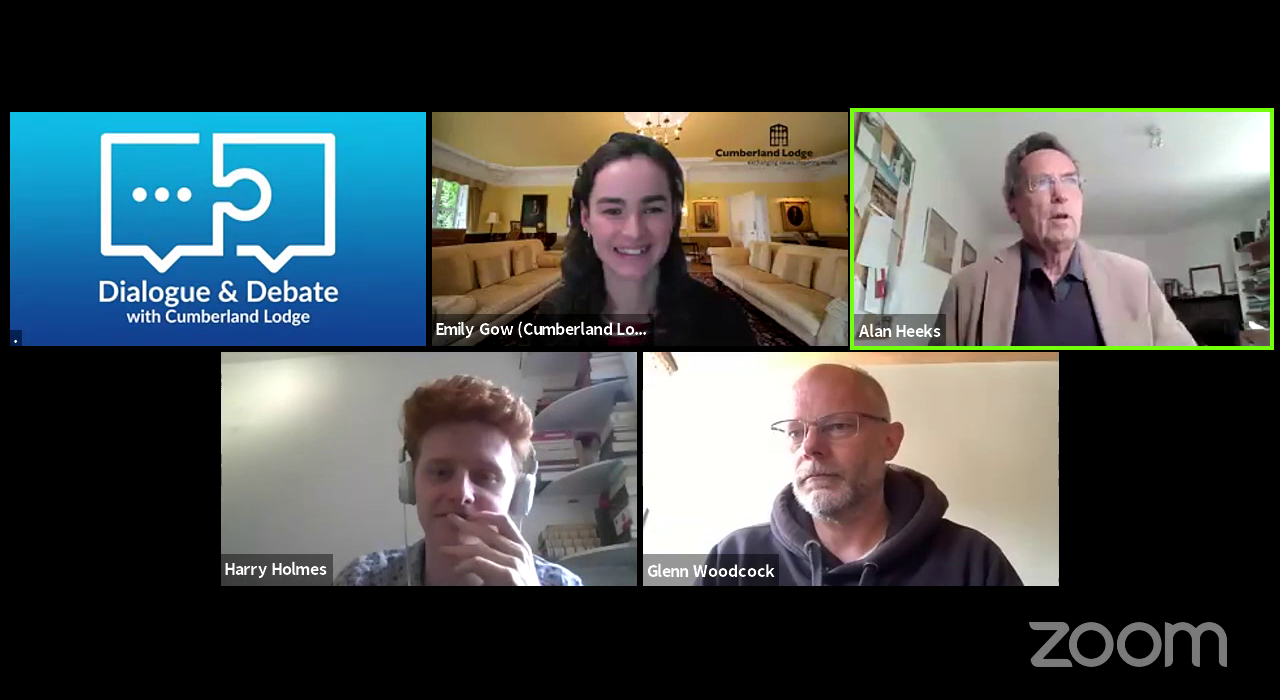
Long-term adaptation strategies
Harry stated that, in his view, the Government’s long-term strategy for addressing climate change is inadequate, with particular reference to flood risks as an example. Harry explained that, by relying on insurance to deal with flood damage, responsibility to deal with the increasing risks and maintain flood defence networks is taken away from the state. He pointed out that the need to be able to afford insurance exacerbates social vulnerability, as wealthy people with adequate cover can recover quickly from floods and suffer less disruption than those who live in social housing or are renting.
Harry emphasised the lack of domestic and global spending to fill these kinds of climate adaptation gaps but there is also a wider process that individualises adaptation and masks the fact that not enough is being done by the state. Glenn added that flooding is the result of increased rainfall, which cannot be controlled, but also due to farmland drainage and impaction issues, which can be addressed.
Thoughts and reflections
To end the webinar, all the panellists were asked to reflect on their hopes for climate adaptation in the next 20 years. Harry said he would like to see the global and domestic adaptation gaps filled as soon as possible, ideally through community-led processes. Glenn hoped that everyone would rethink what ‘a good life’ is and move away from consumerist culture to focus on putting community relationships and the planet first. Alan expressed the importance of communities getting ‘more involved in climate issues’ and stated that there needs to be more ‘focus on adaptation’ alongside climate change mitigation.
This webinar has given me a fresh perspective on the current global situation and the personal and social responsibility we all share to protect and preserve the environment. I feel that everyone should be made aware of the societal implications of climate change and the initiatives currently in place to minimise its now unavoidable impacts. I hope that everyone chooses to be involved in adaptation plans and changing their lifestyles, to a lesser or greater extent, to help protect nature and promote social cohesion in the face of change.

